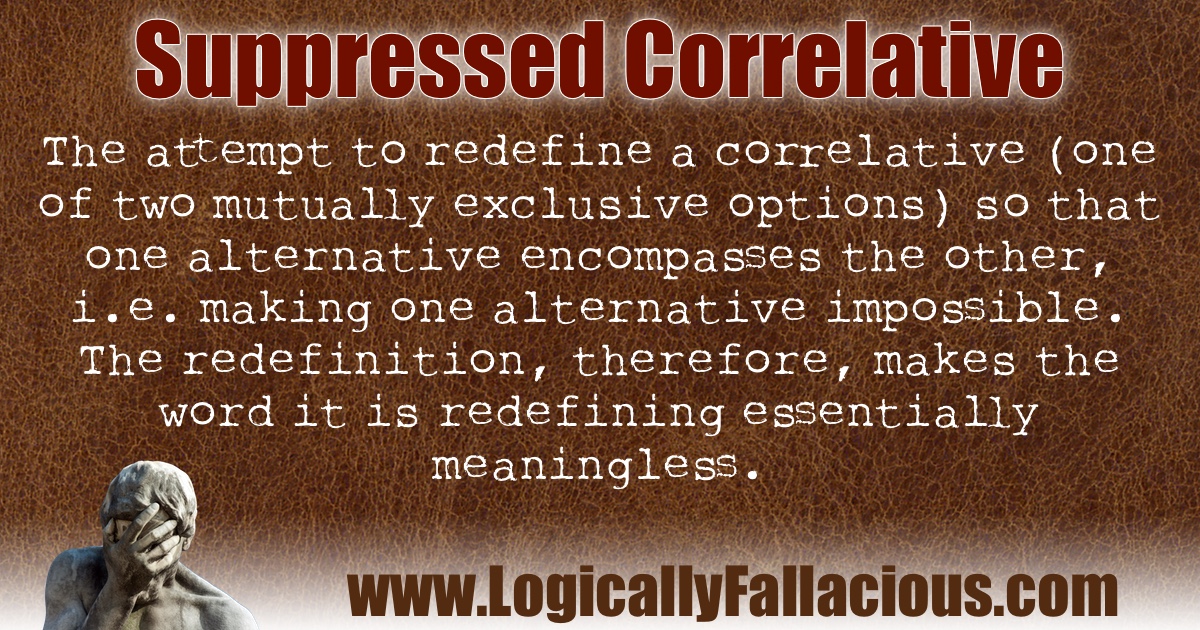(also known as: fallacy of lost contrast, fallacy of the suppressed relative)
Description: The attempt to redefine a correlative (one of two mutually exclusive options) so that one alternative encompasses the other, i.e. making one alternative impossible. The redefinition, therefore, makes the word it is redefining essentially meaningless.
Logical Form:
Person 1 claims that all things are either X or not X (the correlatives: X–not X).
Person 2 defines X such that all things that you claim are not X are included in X (the suppressed correlative: not X).
Example #1:
Rick: I need to know if we should stop for lunch or not. You are either hungry or not hungry, which is it?
Tina: If being hungry is being able to eat, I am always hungry.
Explanation: If we redefine hungry as, “being able to eat” then except for the few occasions where people are medically incapable, everyone is always hungry, and it has lost all meaning.
Example #2:
Kent: My new car is really fast.
Cal: I doubt that it is as fast as a jet fighter so, therefore, it is not fast.
Explanation: In Kent’s statement, there is an implied correlative, that is, his car is either fast or not fast. Now if what Cal says is true, then no cars would ever be considered “fast,” and speed would lose all meaning for cars.
Exception: Refusing to give into a false dilemma is not the same as committing the suppressed correlative fallacy. In example #1, while one cannot be both hungry and not hungry, one can be a little bit hungry.
Rick: I need to know if we should stop for lunch or not. You are either hungry or not hungry, which is it?
Tina: I am a little bit hungry, so go ahead and stop if you are hungry otherwise I can wait.
Note that this fallacy is not committed because Tina did not attempt to redefine “hungry” so “not hungry” is essentially impossible.
Tip: Whenever presented with just two options, take a moment to consider if those are actually your only two options.
